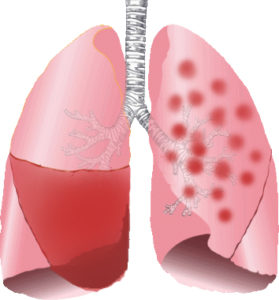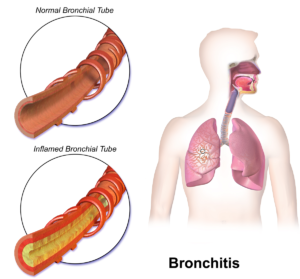 Practical Practitioner
Practical Practitioner
By: Pamela Egan, FNP-C CDE
Natural Remedies for Colds and Upper Respiratory Infections
Antibiotics Not Useful in Treating Viral Colds and Upper Respiratory Infections
By: Pamela Egan, NP, ABAAHP Diplomat
August 10, 2009 – Although most colds aren’t considered serious illnesses, they undoubtedly can affect the way you feel. Have you noticed that most nonprescription drug products are not effective in treating the common cold?
 Hundreds of viruses, particularly rhinoviruses, can cause the upper respiratory infection known as the common cold. We all know that nasal secretions from coughing or sneezing can spread cold viruses. Most colds are spread by hand to hand contact with someone who has a cold such as doorknobs, grocery baskets, computer keyboards, or telephones. Once you touch your mouth, nose or eyes after such exposure to a cold virus, you can acquire a cold.
Hundreds of viruses, particularly rhinoviruses, can cause the upper respiratory infection known as the common cold. We all know that nasal secretions from coughing or sneezing can spread cold viruses. Most colds are spread by hand to hand contact with someone who has a cold such as doorknobs, grocery baskets, computer keyboards, or telephones. Once you touch your mouth, nose or eyes after such exposure to a cold virus, you can acquire a cold.
Colds and other upper respiratory infections often occur during cold weather months, when most people spend more time indoors. That close, extended contact with others who may be sick increases risks.
 Symptoms of the common cold usually appear about 1-3 days after exposure to a virus. The most common symptoms are a runny or stuffy nose, itchy or sore throat, cough, sneezing, watery eyes, body aches or a mild headache, mild fatigue, and a low grade fever.
Symptoms of the common cold usually appear about 1-3 days after exposure to a virus. The most common symptoms are a runny or stuffy nose, itchy or sore throat, cough, sneezing, watery eyes, body aches or a mild headache, mild fatigue, and a low grade fever.
Antibiotics, which are used to treat bacterial infections, are not useful in treating colds which are viral. There’s no known cure for colds. There are some remedies that help relieve symptoms. My favorite is vitamin C, specifically, Ester C 1000mg 4 times a day. Zinc (50 mg a day while you’re sick) and probiotics are natural antivirals. Zinc lozenges may reduce the duration of symptoms. Of course you should also be taking your Fish Oil & Multi-Vitamins.
Drinking plenty of liquids such as plain water, juice, clear broth and chicken soup, help loosen the mucus that can cause congestion and helps prevent dehydration. Using humidifiers or vaporizers moisten the air around you and ease congestion. There’s nothing like the smell of Vick’s Vapor rub coming from the vaporizer. Make sure that you replace the water daily to avoid mold, fungi or bacteria.
Decongestions should be used only after consulting with your health care provider. They should not be used if you have high blood pressure, heart disease, kidney disease, glaucoma, thyroid problems, or diabetes. Saltwater saline spray is safe to use to relieve a stuffy nose.
Guafenesin (Mucinex), can help to thin mucus and are considered safe. Antihistamines will help to relieve a runny nose, but may slow down the passage of germs since it dries everything up and makes it thicker. Remember to wash your hands well. Regularly clean surfaces and shared objects with disinfectants. Limit exposure to others with colds if at all possible. Maintain good health habits. Eat well balanced meals, take a good quality vitamin, get enough sleep, & exercise regularly to keep your immune system healthy.
Pamela Egan, NP, CDE, ABAAHP Diplomat
7039 Hwy 190 East Service Road
Covington, LA 70433
Ofc. 985-893-3737
Fax-985-893-3782
cell- 504-554-9822
Pamela Egan, MN, NP, CDE, ABAAHP Diplomat is a board certified Adult & Family Nurse Practitioner, Certified Diabetes Educator, and has completed a Fellowship in Anti-Aging & Regenerative Medicine. She can be reached at 985-892-3031 or www.pamelaegan.com.
Recent Posts:
- – Raynaud’s Disease: Are Cold Hands and Feet Causing You Misery?
- – Foods that Heal
- – The Health Benefits of Tea
- – Menopause: When is Hormone Replacement Therapy Appropriate?
- – Anti-Aging Medicine: Myth Or Reality?
- – What is Swine Flu and What are its Symptoms?
- – Andropause: Male Menopause Caused By Testosterone Deficiency
Most Read:
- – Experts Call for Increased Dose of Vitamin D3
- – Vitamin D3 Deficiency
- – Folic Acid Deficiency: The Benefits of L-Methylfolate
- – Leaky Gut Syndrome
- – Female Weight Gain: Why am I gaining weight?
PamelaEgan.com > Health Articles > Alternative Medicine

